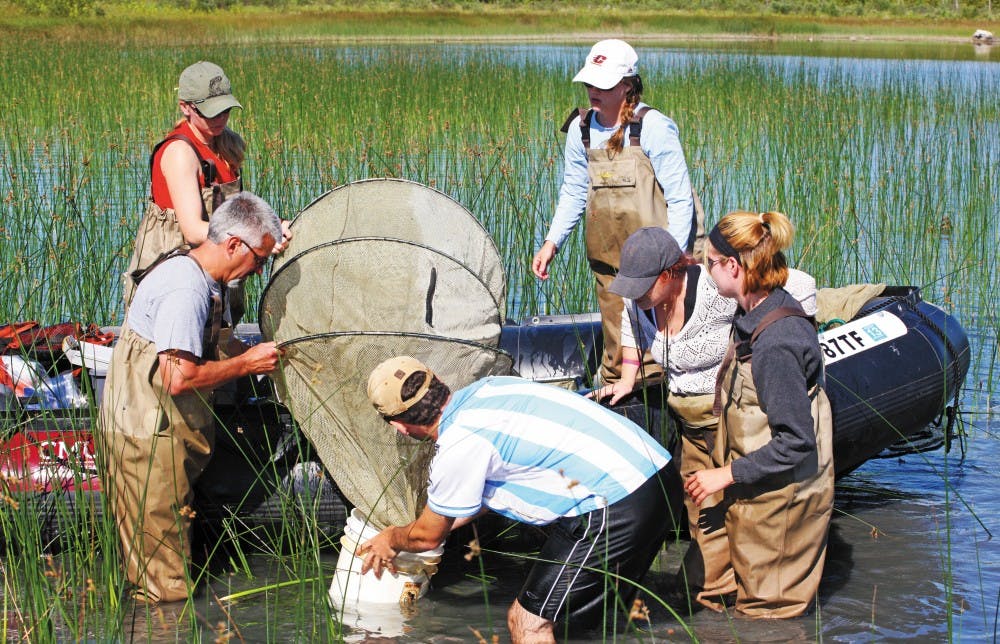CST receives more than $35 million in grants in past five years

The College of Science and Technology has received $35.7 million in grant research over the last five and a half years, according to data provided by the Office of Research and Graduate Studies.
Of that amount, $21.6 million was given to research within the Department of Biology, approximately 60.4 percent of all grant funding received by the college. In contrast, the computer science department has received about $160,000 in grants, less than half a percent of all grant funding. The department of computer science did not receive any grants during the 2013-14 and 2014-15 school years and has not received any so far this year.
Mary Montoye, executive director of the Office of Research and Graduate Studies, said the data does not include grants provided for research in which CMU professors work alongside other professors as co-principal investigators. If two professors collaborate on a project and receive a grant for their work, the office does not count the funding in their official data.
The largest donor was the Environmental Protection Agency, which has donated $12.6 million. Another S1.25 million was donated by the EPA in collaboration with other organizations. A Great Lakes Restoration Initiative grant for $10 million for coastal wetland monitoring was awarded in 2010 to professor Donald Uzarski, director of CMU’s Institute for Great Lakes Research and the Biological Station on Beaver Island.
Uzarski and his team received a second $10 million grant in October. Of that second grant, only $2 million is included in the current data provided by the Office of Research and Graduate Studies.
“Over 50 percent of all Great Lakes coastal wetlands have been lost to development at this point and we are just now beginning to understand how important these systems are to the overall Great Lakes ecosystem and our economy,” Uzarski said in a press release provided by the EPA in October.
Other prominent donors include the National Science Foundation, which donated $6.9 million, the U.S. Department of Energy, donating $1.8 million, and the Michigan Department of Education, donating $1.9 million. The NSF also collaborated with other organizations to donate $556,187.



